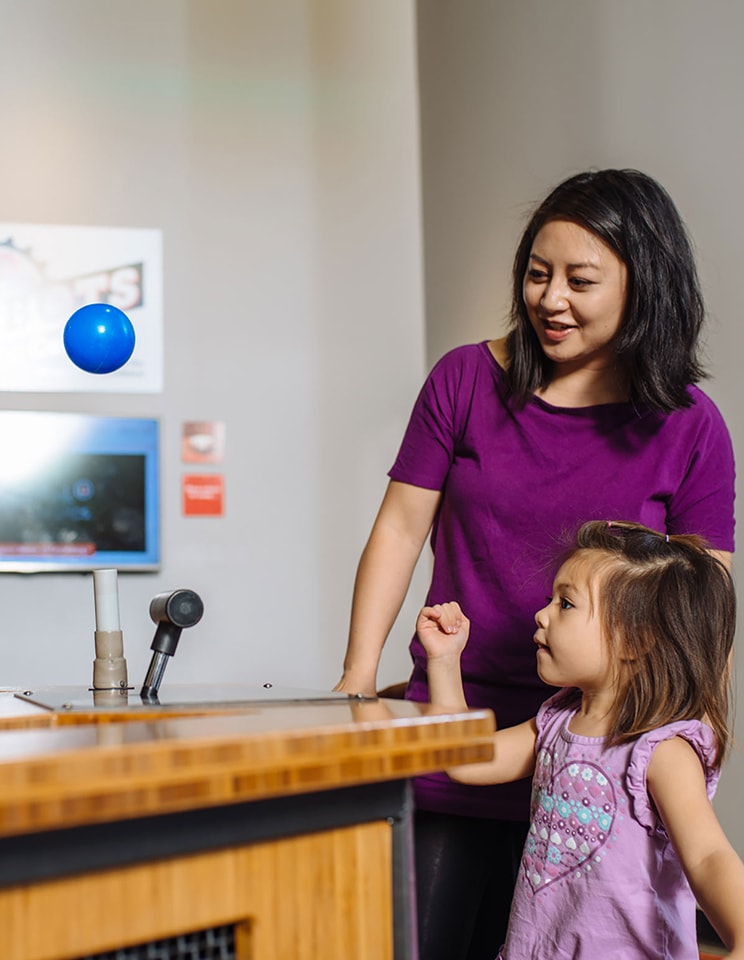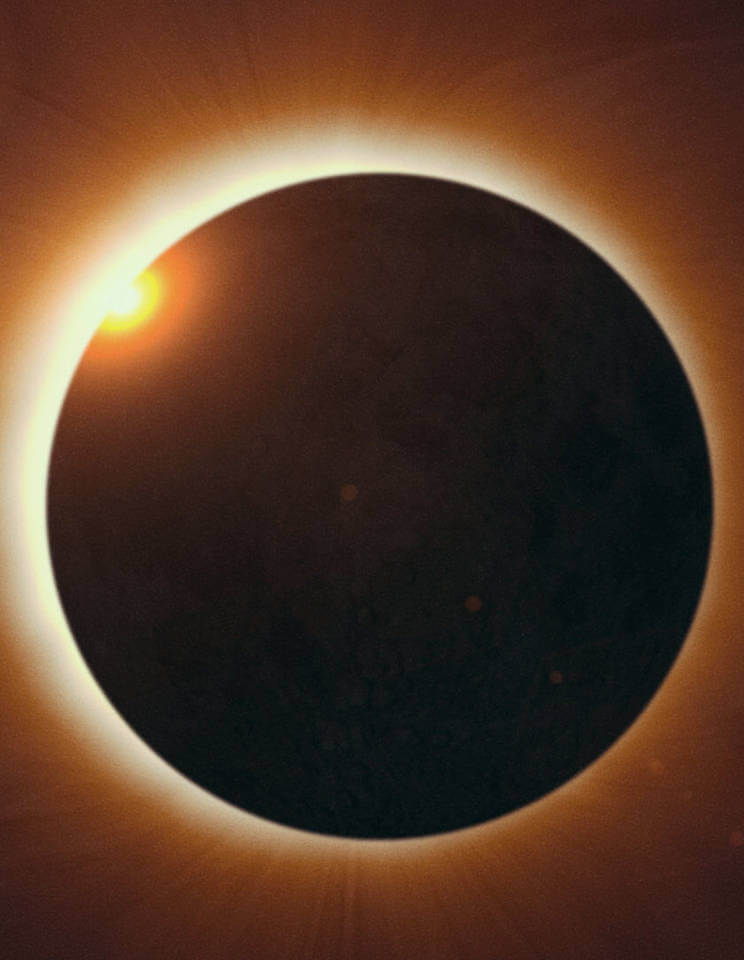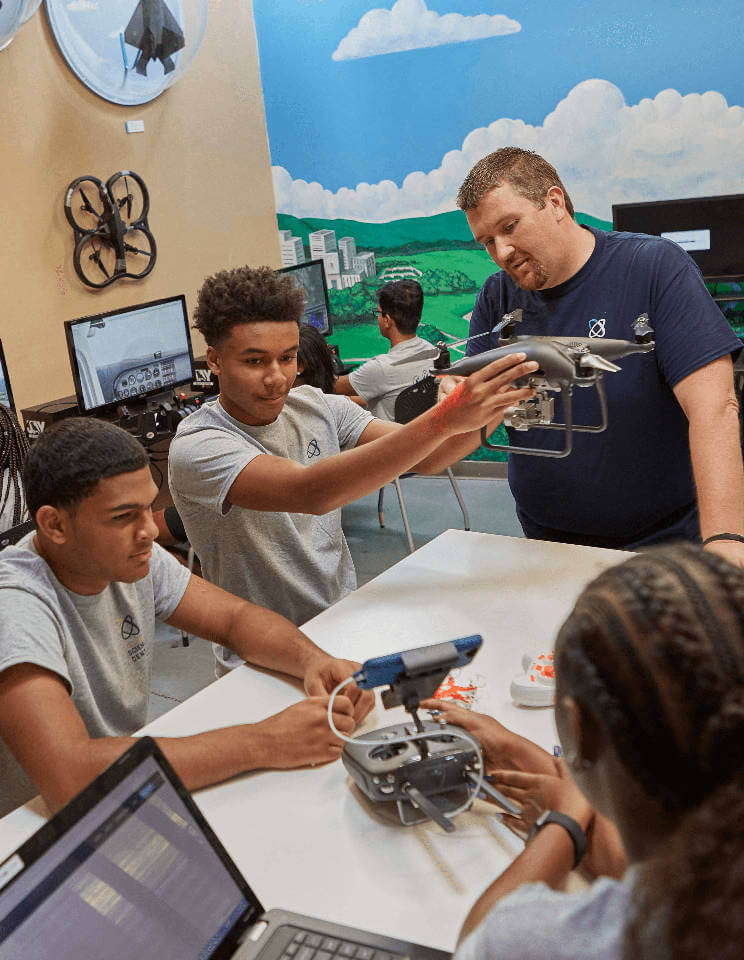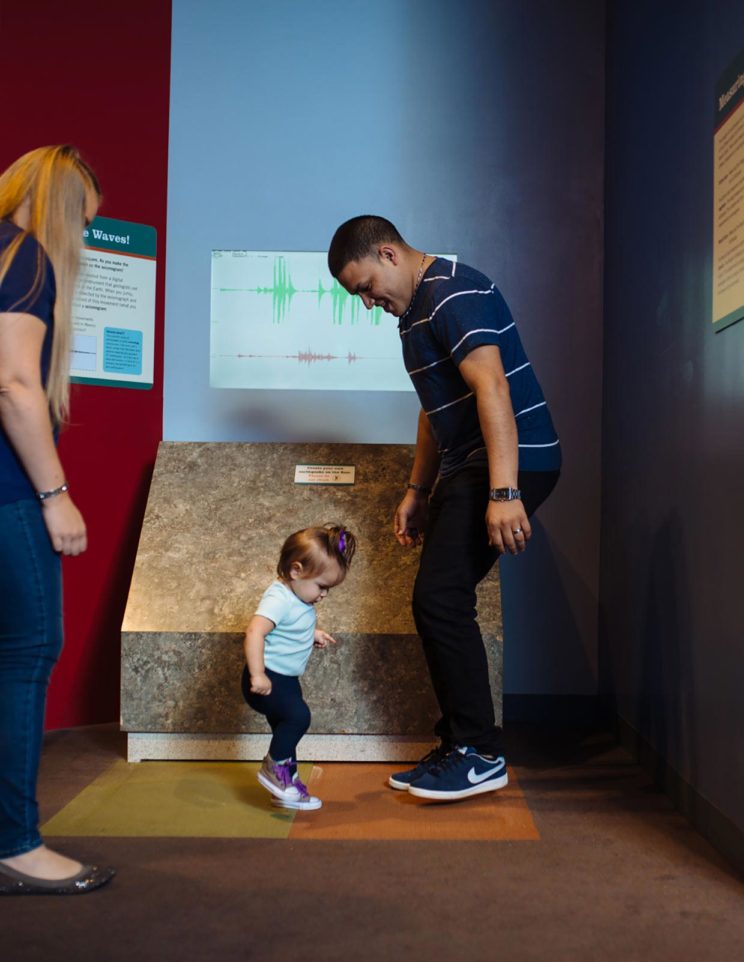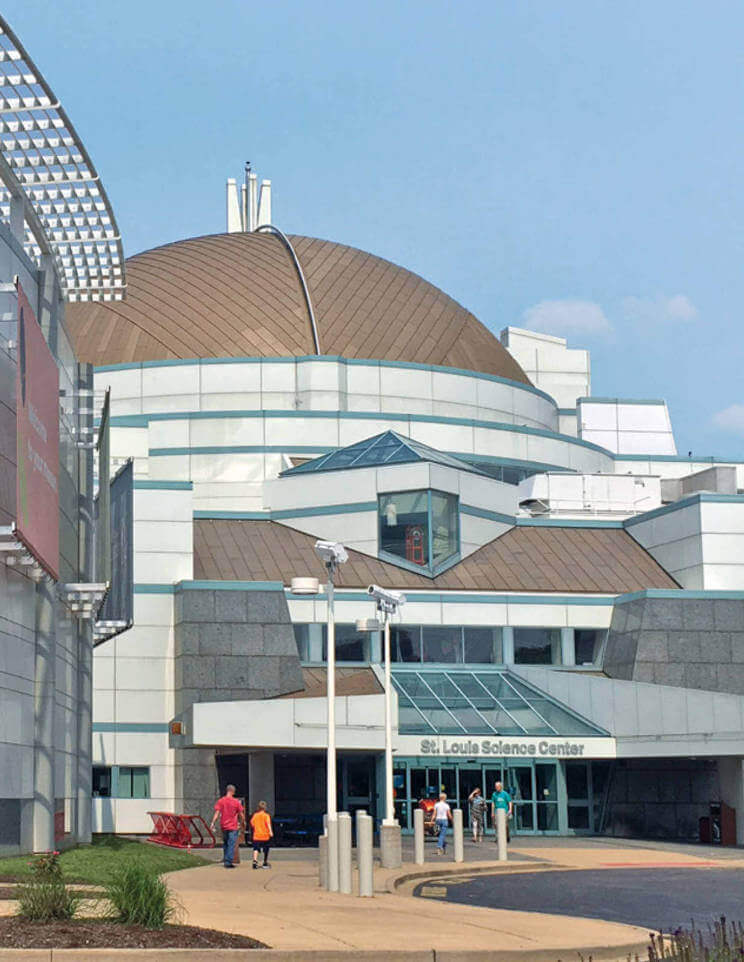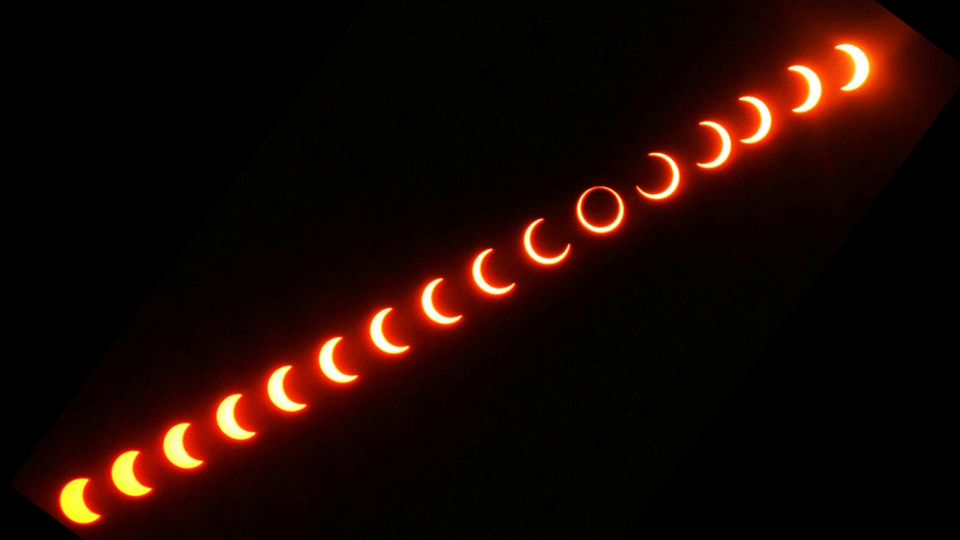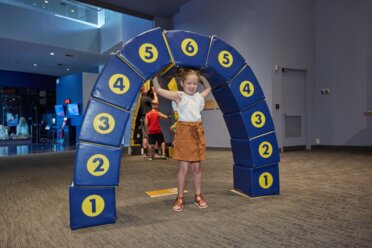ST. LOUIS, MO – September 27, 2023
St. Louis Metropolitan Area to Experience Two Solar Eclipses in Coming Months
Saint Louis Science Center to Host Several Events to Explain, Observe This Impressive Phenomenon
In October, St. Louisans will look up to view a partial solar eclipse and then, in April 2024, will have the chance to observe another eclipse in our region. The Saint Louis Science Center will mark these incredible natural occurrences caused by the alignment of the sun, moon and Earth with educational programming and special viewing events.
“The next six months mark the culmination to an unprecedented astronomical period for our region,” William Snyder, manager of the Science Center’s James S. McDonnell Planetarium, shared. “Starting with August 2017 and ending this April, Missouri and Illinois have literally formed the ‘X’ on the map to solar eclipses. Eclipses occur regularly, but for two total solar eclipses to cross paths so soon and so close to our homes—along with the additional sight of a partial eclipse in-between—is a rare treat for our residents and visitors. And, since solar eclipses won’t be visible in the Midwest for many years, we encourage everyone to take time to look up, learn more and safely observe these impressive spectacles through upcoming programs at the Saint Louis Science Center.”
The Science Center will offer specific eclipse programming over the next several days and months, including:
- ECLIPSE, a live star show at the James S. McDonnell Planetarium – Daily during open hours from September until April, the James S. McDonnell Planetarium team hosts a star show that explains the motion of the sun, Earth and moon and how their positions cause solar or lunar eclipses. The 45-minute program includes a visual demonstration of what happens during a solar eclipse and instructions for viewing it safely. A pair of solar eclipse viewing glasses are included with each ticket, which costs $7 for adults, $6 for children 2-12 and seniors ages 60 and older, and is free for Science Center members.
- SciFest: The Great Outdoors/Eclipse Expo – On Oct. 14, the Science Center’s popular SciFest program will feature activities and engagement in areas such as space, nature, agriculture and solar eclipses. The free program includes partial eclipse viewing opportunities using solar telescopes outside the Planetarium (weather permitting), and the first 4,000 attendees will receive eclipse viewing glasses to watch the eclipse in the GROW gallery. Throughout the day, guests will have opportunities to interact with local astronomers, scientists and a variety of outdoor-related STEM experts; watch demonstrations; and create objects to better understand what’s happening in the skies above and on the ground around our region. In addition to outside viewings or if clouds impact the observation locally, Science Center team members will livestream video to allow guests to view the annular eclipse travel its path along the southwestern United States.
- SciFest: The Great Outdoors – In 2024, the Science Center will host another free SciFest program on April 6 in preparation for the total solar eclipse happening a few days later. Throughout the day, guests can visit with local STEM professionals and top experts from the Metropolitan Area and beyond to discover more about outdoor activities and events such as the total solar eclipse on April 8 that will be visible along a path through southern Illinois and Missouri.
- Future eclipses – After April 8, the next total solar eclipses visible in Missouri/Illinois are expected in August 2045 and June 2048.
Safe Viewing During a Solar Eclipse
“The key to viewing solar eclipses is to observe them safely, which is why our educational programs are so valuable,” notes Snyder. “During our ECLIPSE star show and SciFest programs, our team will explain how eclipses occur, what happens in our skies and here on Earth during them, and what guests can do to protect their eyesight before, during and after they occur—all while having a great time doing so.”
Because the sun emits more light than the human eye can handle, looking directly at it—even during a solar eclipse—can damage the retina and result in permanent vision loss. To safely view the sun during an eclipse, you will need to use approved solar viewing equipment like eclipse glasses, a telescope or camera with an approved solar filter, or a pinhole viewer. Science Center guests can obtain eclipse glasses by viewing the ECLIPSE star show, being one of the first 4,000 to attend the Oct. 14 SciFest program or purchasing them at either gift shop in the facility. If obtaining solar glasses from another provider, be sure to look for ISO certification to ensure they will provide effective protection.
For more the Science Center’s upcoming eclipse activities, please visit slsc.org/eclipseinfo.
The Saint Louis Science Center is free and open to the public during regular hours (Thursdays through Mondays). For more information about the Science Center, please visit slsc.org or call 314-289-4400.
For more information, or to schedule interviews with Science Center personnel, contact
Doug Bolnick, Public Relations Manager.
Email or call 314.289.4461
About the Saint Louis Science Center
The mission of the Saint Louis Science Center is to inspire everyone to be curious and engaged in science. Named a Smithsonian Institution Affiliate in 2016, the award-winning Science Center engages guests through on-site experiences, including hundreds of hands-on exhibits, the OMNIMAX® Theater, which is one of just nine IMAX® Dome with Laser theaters in the world, and the James S. McDonnell Planetarium featuring the largest artificial sky in the Western Hemisphere. Additionally, the organization provides informal educational programming to schools and other organizations in the St. Louis community and is home to the nationally recognized Youth Exploring Science (YES) program, which works with underserved teens throughout their high school years to prepare them for in-demand STEM careers. For more information about the Saint Louis Science Center, please visit slsc.org.
